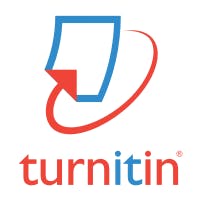What do comedian Mindy Kaling, billionaire Elon Musk and entrepreneur Anant Agarwal have in common? They all understand the importance of feedback.
Feedback is crucial for all students in all subjects, not just TV comics and business magnates in-the-making. And it’s at the very heart of learning how to write. Thoughtful and effective teacher responses lead students to a greater sense of self-efficacy and engagement, and an increased willingness to take risks. And yet, teachers are often unclear on how best to offer writing feedback and, more importantly, how to teach students to give meaningful feedback to themselves.
During a decade spent working at the College Board and, more recently, at Turnitin, I’ve collected best practices from classroom teachers and recommendations from academic researchers. Here are four suggestions for providing transformative feedback to writing students.
1. Set clear, concrete learning goals and measure progress with simple, direct criteria
Make sure to clearly and simply describe to your student the goals of a task and how you will be measuring progress. For example, you might explain to a student that her goal is to successfully use evidence to support her thesis in an essay; then specify that you’ll evaluate her success by looking at the number of support statements, the relevance of her claims, and the use of proper citation.
Rubrics and examples are excellent ways to communicate such expectations. Sample student essays, for instance, can illustrate insufficient, adequate, and excellent work, clearly demonstrating to students what performance at each skill level should look like.
2. Focus your feedback on the task—not on the learner
Research underscores what most good educators know innately; feedback should be objective, refer to learning goals, and not pass personal judgement. Comments such as, “You’re a really good student!” provide no actionable information.
Instead, offer feedback that is non-judgmental, suggests concrete steps a student can take, or highlights rubric criteria, such as, “You satisfy the first requirement by clearly supporting your thesis with three relevant examples.”
3. Save time by prioritizing and being specific
Educators should relay their comments as quickly as possible, says Susan Brookhart, author of How to Give Effective Feedback to Your Students. Ideally, this happens while students are engaged in the writing process or immediately following the completion of a task; when students are still focused on their learning goals, they have the opportunity and motivation to act on feedback.
Commenting on a classroom’s worth of essays can be time-consuming, but there are ways to speed up the process. Focus initially on the information that has the greatest potential to improve the students’ writing. Ronald Lunsford, a Professor of English at UNC Charlotte, recommends providing about three well thought out comments per assignment.
What’s more, vague comments can be difficult to decipher and may frustrate students, says Florida State University’s Valerie Shute. Instead, specify the particular sentence or section of the paper that needs improvement, identify which goals the writing has not met, and provide suggestions for how a student can satisfy that criterion.
4. Most importantly, teach your students how to give themselves feedback
Ultimately, feedback should help students develop their own skills of self-assessment and critique. King’s College researchers Paul Black and Dylan Wiliam suggest that teachers should instruct students directly on how to give feedback to themselves. To do this:
- Encourage your students not to be afraid of making mistakes, and to focus on the writing process itself rather than on the grade it will earn. Promote a learning-oriented mindset by asking students to write shorter portions of their essay drafts; provide your feedback on these without giving letter grades.
- Devote an entire class to the feedback process. Consult sample lesson plans from Orange County Public Schools, The University of Tennessee’s Center for Literacy, Education and Employment, and New York City Department of Education District 75.
- Incorporate rubric-based peer-review exercises into the writing process. Students will learn how to give feedback to themselves by first learning how to give it to others.
- Offer your students plenty of practice in applying feedback towards revision, allowing them to revise as many times as possible.
- Have your students respond to the feedback you provide. Feedback is, after all, a dialogue between you and your students about their writing. You can discuss their responses during in-person meetings or ask them to write brief paragraphs about your comments when they turn in their revised drafts. Ask them to reflect on how your comments were relevant to the task’s goals, and what changes they made to their writing as a result.
As students’ experiences with self-reflection deepen, you’ll see them engage in the process more frequently. Their confidence and self-esteem will increase as they better understand how to assess themselves. With more robust senses of self-efficacy, they’ll be more prone to explore writing, to take risks, and to listen to constructive criticism.
The end result? They will grow into independent, engaged, and effective writers. That’s a skill set even famous comedians and billionaire entrepreneurs can appreciate.



